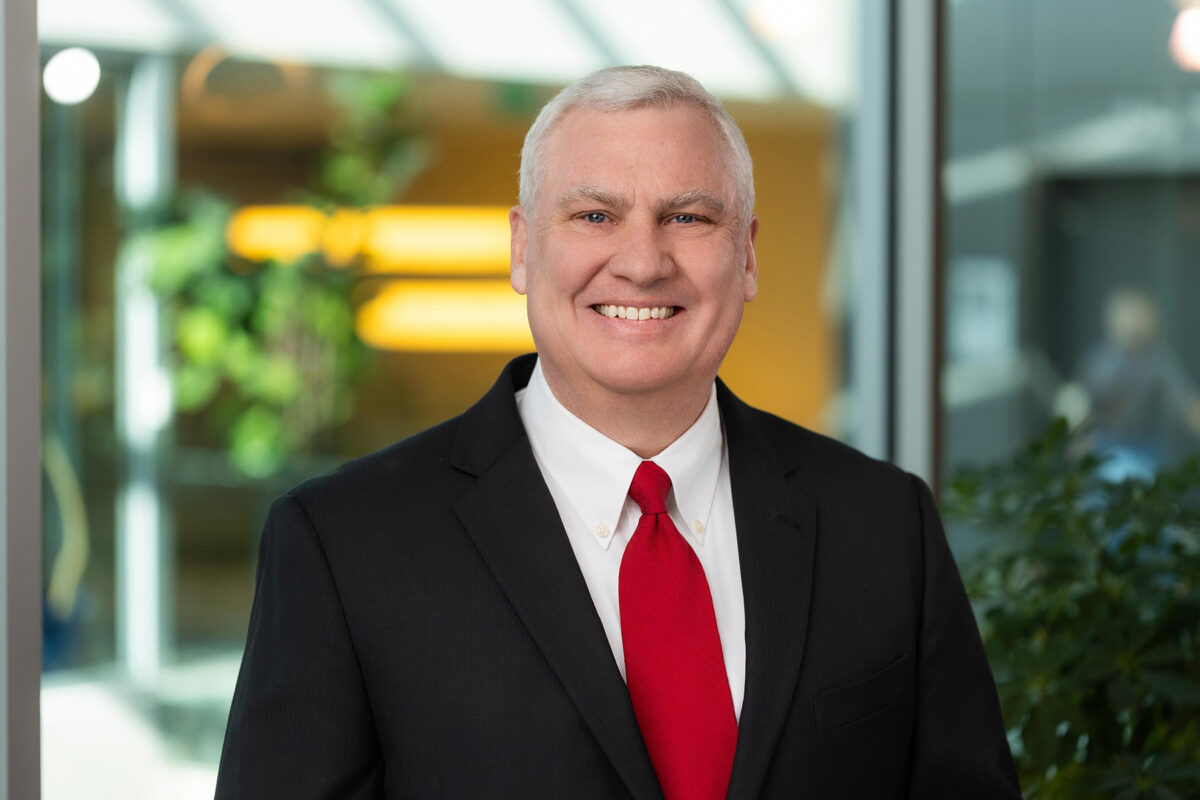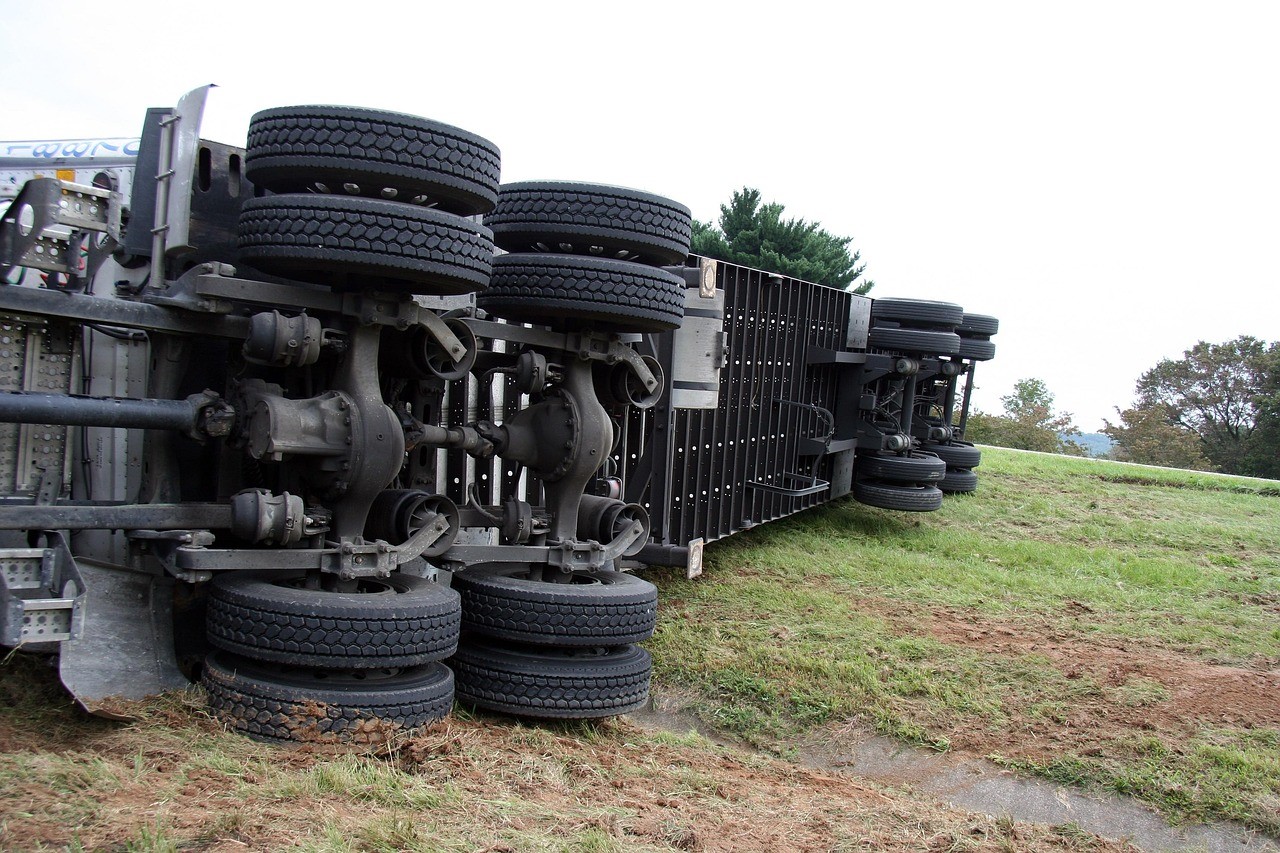At Boesen Law, our Denver truck accident lawyers understand how difficult it can be to get back on your feet after a large truck or commercial vehicle accident. Our lawyers are here to help you protect your rights and fight for the full, fair recovery you are owed.
If you or someone you love was involved in a collision with a semi-truck, big rig, tractor-trailer, 18-wheeler, delivery van, or any other commercial vehicle, reach out to our law firm in Denver today to learn how we can help you seek the justice you deserve.
Reach out to our law firm for a no-cost, no-obligation consultation today. Call our personal injury lawyers in the state of Colorado at (303) 999-9999 or contact us online.
Navigating the aftermath of any motor vehicle accident can be challenging. Most large truck accidents in Denver result in significant damage, including catastrophic bodily injuries. These injuries can lead to permanent disability, life-altering impairments, and even death. Victims and their families are often left to pick up the pieces of their lives and may struggle to keep up with mounting medical bills on top of weeks, months, or years of lost wages and immense physical and emotional pain and suffering. Our personal injury lawyers are experienced in handling these complex cases, ensuring you get the compensation you need to rebuild your life.
Compensation Available After a Denver Truck Accident
If you’ve been involved in a truck accident in Denver, there are several types of compensation you may be eligible to receive. These compensations are designed to help you recover from the financial, physical, and emotional damages caused by the accident. Below are the common forms of compensation available:
-
Medical Expenses
Covers immediate medical treatment, hospital stays, surgeries, prescription medications, and any ongoing rehabilitation or therapy you may require.
-
Lost Wages
If your injuries have prevented you from working, you can seek compensation for lost income during your recovery period and potentially for future lost earning capacity.
-
Pain and Suffering
Compensation for the emotional distress and physical pain endured as a result of the accident. This can include long-term pain or trauma caused by the incident.
-
Property Damage
Covers the cost of repairing or replacing your vehicle and any other property that was damaged in the accident.
-
Punitive Damages
In cases of extreme negligence or reckless behavior by the truck driver or trucking company, you may be entitled to punitive damages. These are intended to punish the wrongdoer and deter similar conduct in the future.
Consulting with an experienced Denver truck accident attorney is crucial to ensuring you receive the maximum compensation available under the law. They can guide you through the legal process and help protect your rights.
Truck Accident Settlement
The amount listed below is a good example of compensation that Boesen Law was able to win for our former clients.
$4,100,000.00 – we helped our client who was seriously injured during a truck accident in Colorado.
To view more of our verdicts and settlements, please visit our case results page.
Who Is Liable for Damages After a Truck Accident in Denver?
Determining liability for a truck accident typically begins with establishing fault. Under Colorado’s traditional fault-based system, injured victims of all types of motor vehicle accidents generally must prove another party’s fault and then bring an injury claim against the at-fault party’s insurance company to be compensated for their damages. The same is true in Denver truck accident cases, although identifying the liable party can be somewhat more complicated after a truck accident compared to standard car accident claims.
Potentially Liable Parties
On the surface, the drivers are often the ones directly responsible for causing truck accidents in Denver. However, it is often more complicated than that. While they may be partially liable, other parties may also be found wholly or partially responsible for the accident.
Under various state laws, the trucking companies themselves are often considered liable for the conduct of their employees, including accidents involving a commercial work truck. This includes any injuries or damages those employees cause while they are carrying out duties or activities that benefit the company.
In other instances, a trucking company may have engaged in negligent conduct or practices that indirectly led to the truck accident in Denver. In still other instances, the accident may have resulted from the negligence of another third party, such as a manufacturer that created a defective truck part or an individual responsible for truck maintenance who failed to report problems with the vehicle.
Determining Liability
Determining who is liable for your truck accident often requires the expertise of accident reconstructionists, expert witnesses, and other industry professionals. At Boesen Law, our attorneys work with a team of experts to thoroughly analyze these accident cases, determine exactly what happened, and identify the liable party. Our Denver truck accident lawyers have extensive trial experience and a track record of success in even the toughest, most complex accident cases.
Truck Accident Statistics in Colorado
Truck accidents are a significant issue in Denver and throughout Colorado. According to the Colorado Department of Transportation (CDOT), large truck crashes accounted for over 5,000 incidents across the state annually. In 2020 alone, trucks were involved in approximately 8% of all traffic-related fatalities in Colorado. Additionally, from 2018 to 2020, the Federal Motor Carrier Safety Administration (FMCSA) recorded nearly 150 fatal truck crashes in Colorado.
Denver’s major highways, such as I-70 and I-25, are particularly susceptible to these accidents due to the heavy volume of commercial vehicle traffic. This combination of high-speed routes and large vehicles increases the likelihood of severe crashes, often resulting in catastrophic injuries or fatalities for those involved in smaller vehicles.
Common Causes of Truck Accidents
Every year, thousands of people are severely injured or killed in collisions with large trucks and commercial vehicles in Denver. Most often, these truck accidents are the result of negligence, wrongful or reckless conduct, or preventable errors.
Top causes of Denver truck accidents include:
-
Truck driver error or negligence, such as distracted driving, speeding, or driving under the influence of alcohol or drugs
-
State and/or federal hours-of-service violations, leading to fatigued driving or truck drivers falling asleep behind the wheel
-
Negligent trucking company practices, such as failure to conduct background checks, improper truck driver training, or failure to enforce safety policies
-
Improperly loaded cargo or overloaded cargo, leading to shifting weight during transit, loss of vehicle control, and other problems
-
Poor truck maintenance, including failure to conduct routine inspections, failure to report needed repairs, and failure to complete vehicle repairs
-
Defective truck design or defective truck parts/systems, including tires, brakes, power steering, lights, reflective strips, and engine components
-
Poorly maintained or defective roadways, resulting in potholes, blind curves, improper speed limits, and other roadway hazards
-
Third-party negligence, including the negligent, reckless, careless, or wrongful conduct of other drivers on the road
Types of Truck Accidents We Cover
In our decades of experience, we have seen truck accidents occur in various ways, each with its own set of challenges and implications. Here are some common types of truck accidents:
- Rear-end collisions: Often caused by sudden stops or following too closely. These accidents can cause severe injuries due to the size and weight of the truck.
- Jackknife accidents: Occur when the truck’s trailer swings out to the side, forming a 90-degree angle with the cab. This can happen due to abrupt braking or slippery road conditions.
- Rollover accidents: These accidents occur when a truck flips onto its side or roof, often due to sharp turns, speeding, or uneven loads.
- Underride accidents: Happen when a smaller vehicle slides under the rear or side of a truck, often resulting in catastrophic injuries or fatalities.
- Tire blowouts: Can cause the driver to lose control of the truck, leading to collisions with other vehicles or objects.
- Blind spot accidents: Trucks have large blind spots, and accidents can occur if a truck driver changes lanes or turns without seeing another vehicle in their blind spot.
- Wide turn accidents: When a truck makes a wide turn, it can collide with other vehicles or pedestrians that are caught in the turn path.
- Excavation accidents: Occur when construction or excavation vehicles, such as dump trucks or excavators, cause injuries due to improper operation, poor site safety, or equipment malfunctions. These accidents can lead to severe or even fatal injuries.
Each type of truck accident requires a detailed investigation to determine the cause and identify all responsible parties. At Boesen Law, our experienced attorneys are equipped to handle all types of truck accident cases and will work tirelessly to secure the compensation you deserve.
Common Injuries From a Truck Accident
Truck accidents can result in severe injuries due to the size and weight disparity between commercial trucks and passenger vehicles. Some common injuries that victims sustain from truck crashes include:
- Whiplash and Neck Injuries: The force of impact in a truck crash can cause the head and neck to jerk violently, leading to whiplash injuries.
- Spinal Cord Injuries: Truck accidents can cause traumatic spinal cord injuries, such as herniated discs, fractures, and compression injuries.
- Traumatic Brain Injuries (TBI): Head trauma is common in truck accidents, resulting in traumatic brain injuries ranging from concussions to more severe forms of TBI. Symptoms may include headaches, dizziness, cognitive impairments, and changes in mood or behavior.
- Broken Bones and Fractures: The sheer force of a truck collision can cause passengers in smaller vehicles to suffer broken bones and fractures. Common fractures include broken arms, legs, ribs, and pelvis.
- Internal Injuries: Blunt force trauma from a truck accident can cause internal injuries such as organ damage, internal bleeding, and abdominal injuries. These injuries may not be immediately apparent and can worsen over time if left untreated.
- Amputations: In severe truck accidents, victims may suffer traumatic amputations of limbs due to crushing injuries or severe trauma. Amputations can have lifelong consequences and require extensive medical treatment and rehabilitation.
- Burn Injuries: Truck accidents involving fires or explosions can result in burn injuries ranging from minor burns to severe third-degree burns. Burn injuries may require skin grafts, surgeries, and long-term medical care.
- Soft Tissue Injuries: Muscles, tendons, and ligaments can suffer damage in a truck accident, resulting in soft tissue injuries such as sprains, strains, and contusions. These injuries can cause pain, swelling, and limited mobility.
- Psychological Trauma: The emotional impact of a truck accident can be significant, leading to psychological trauma such as post-traumatic stress disorder (PTSD), anxiety, and depression. Victims may experience flashbacks, nightmares, and difficulty coping with the aftermath of the accident.
- Fatalities: Tragically, some truck accidents result in fatalities due to the severity of the injuries sustained. Families may suffer the loss of a loved one, leading to emotional and financial hardships from the wrongful death.
5 Steps to Take After a Denver Truck Accident
Navigating the aftermath of a commercial truck accident can be overwhelming. Here are important steps to take after a Denver truck accident because it can impact your case result:
- Step 1: Get to Safety and Seek Medical AttentionPlease prioritize your safety and the safety of others involved in the accident. If anyone is injured, call 911 immediately and seek medical attention. Even if you feel uninjured, it’s essential to undergo a medical evaluation, as some injuries may not be immediately apparent.
- Step 2: Document the Scene
Try to gather as much information as possible about the accident scene. Take photos and videos of the vehicles involved, the damage sustained, skid marks, road conditions, and any relevant signage or traffic signals. Collect contact information from the truck driver, any witnesses, and law enforcement officers who respond to the scene. - Step 3: Report the Accident
You’ll want to report the accident to the appropriate authorities, such as the Denver Police Department or Colorado State Patrol. Provide an accurate account of what happened and obtain a copy of the police report for your records. Reporting the accident promptly ensures that there is an official record of the incident. - Step 4: Notify Your Insurance Company
You’ll then want to notify your insurance company of the accident as soon as possible. Provide them with the necessary details and cooperate fully with their investigation. Be cautious when discussing the accident with the insurance adjuster and avoid admitting fault or making statements that could be used against you. - Step 5: Contact a Truck Accident Lawyer
Contact Boesen Law, an experienced truck accident law firm that specializes in handling commercial truck accident cases. We can protect your rights, advise you on your legal options, and help you pursue compensation for your injuries and losses. We will also handle communication with insurance companies and navigate the complexities of truck accident litigation on your behalf.
These steps can help protect yourself and improve your legal claim if you’ve been injured in a commercial truck accident in Denver.
Differences Between Truck Accident and Car Accident Claims
While personal injury claims involving large truck accidents are similar to those involving standard passenger vehicles, several key differences set truck accident cases apart from typical car accident claims in Denver.
Key differences between truck accidents and car accidents:
-
Greater Severity of Injuries in Truck Accidents
Due to the sheer size and weight of these vehicles, truck accidents often result in more severe injuries and, therefore, longer recovery times.
-
Damages Awarded Can Be Higher in Denver Truck Accident Cases
More severe injuries sustained in trucking accidents can mean higher medical costs; longer recovery time means higher amounts in lost wages and reduced quality of life. For these reasons, victims of trucking accidents are often awarded higher amounts for both economic and non-economic damages.
-
There May be More than One At-Fault Party in a Trucking Accident in Denver
Drivers of commercial vehicles, like semi-trucks, are usually insured by the trucking company. This means you may be involved in a lawsuit against the truck company itself, as opposed to the driver. Semi-truck accident statistics show the high frequency of these incidents, highlighting the importance of identifying all parties involved. In addition, there may be other parties that contributed to the accident, such as the manufacturer of a defective part or the loading company that improperly loaded the trailer. Your Denver truck accident attorney will help you determine all parties responsible for your injuries.
Safety Regulations for Trucks in Denver, Colorado
In Denver, truck drivers and trucking companies must adhere to both federal and state regulations to operate safely. These regulations cover various aspects, including vehicle maintenance, driver qualifications, and hours of service.
Hours of Service (HOS) Regulations
Key Hours Of Service regulations include:
- 11-hour driving limit: A truck driver may drive a maximum of 11 hours after 10 consecutive hours off duty.
- 14-hour on-duty limit: A truck driver may not drive beyond the 14th consecutive hour after coming on duty, following 10 consecutive hours off duty.
- 30-minute rest break: Drivers must take a 30-minute break after 8 cumulative hours of driving without at least a 30-minute interruption.
- 60/70-hour limit: A truck driver cannot drive after 60 hours on duty in 7 consecutive days or 70 hours on duty in 8 consecutive days. This limit resets after 34 consecutive hours off duty.
Vehicle Maintenance and Inspections
Regular maintenance and inspections are mandated to ensure trucks are in proper working condition. Specific requirements include:
- Daily vehicle inspection reports (DVIR): Drivers must complete a daily inspection report documenting the condition of various parts, such as brakes, tires, lights, and emergency equipment.
- Annual inspections: Commercial trucks must undergo a comprehensive inspection at least once every 12 months, covering the vehicle’s entire mechanical and safety systems.
- Roadside inspections: Trucks are subject to random roadside inspections by authorities to ensure compliance with safety standards.
Driver Qualifications
Truck drivers must meet stringent qualifications to ensure they are fit to operate large vehicles safely. Requirements include:
- Commercial Driver’s License (CDL): Drivers must hold a valid CDL appropriate for the type of vehicle they operate.
- Medical certification: Drivers must pass a medical examination conducted by a certified medical examiner listed on the FMCSA’s National Registry to ensure they are physically capable of driving safely.
Drug and alcohol testing: Drivers are subject to pre-employment, random, post-accident, and reasonable suspicion drug and alcohol testing.
Insurance Requirements for Commercial Vehicles in Denver, Colorado
Moreover, commercial vehicles in Denver are required to carry specific types and amounts of insurance to cover potential damages and liabilities. Colorado state law requires a minimum liability coverage of 25/50/15 for commercial auto policies:
- $25,000 per person for bodily injury
- $50,000 per accident for bodily injury
- $15,000 for property damage
- Certain vehicles like semi-trucks traveling interstate require higher minimum limits of $750,000 combined single limit
Why Hire Boesen Law As Your Denver Truck Accident Lawyer
The lawyers at our firm genuinely care about the people who come to us for help. Our job is to take a situation that has turned their life upside down and help get it turned right side up. Jon Boesen is the founder of Boesen Law, a personal injury law firm that focuses on helping people. Early in his legal career, he realized that he wanted to help individuals and represent them, recognizing the difference it made for them and their families.
People’s biggest fears when hiring a truck injury attorney generally is the uncertainty, especially when they’ve never had experience with attorney representation and how things work. Is it going to cost them something to retain an attorney for a truck wreck? So when we meet with a new client, we’ll go over some of those fears, those concerns, even if not expressed by the client we know they’re thinking about. We want to make them feel comfortable with the process. Let them know what’s going to happen and give them realistic expectations so they’re not wondering what’s happening with the case.
Truck accident cases are not the same as standard car accident claims. It is important to work with a Denver personal injury attorney who has specific experience handling all types of trucking accident cases, such as large truck accidents, semi-truck accidents, 18-wheeler accidents, and box truck accidents. You need someone who knows the ins and outs of federal and state trucking regulations and understands what it takes to go up against major trucking companies and their insurance providers.
Contact Us Today
As your legal team, Boesen Law will be there for you every step of the way. We are prepared to step in and handle all communication with the trucking company, insurance provider, and other involved parties. Right now, you should spend your time focusing on your physical recovery; let our truck accident lawyers in Denver fight for the justice and fair financial compensation you are owed.
Frequently Asked Questions About Truck Cases
What are the time limits for filing a truck accident claim in Denver?
The time limit to file a truck accident claim in Denver is within three years of the accident. After three years, that could mean you’re unable to pursue damages from the accident. It’s critical to understand that if you were hurt during a vehicle accident you should get in contact with a truck accident lawyer as soon as possible to review your case.
How have you helped truck accident victims in the past?
It’s critically important to find the right attorney for the type of case you have. An attorney handling a truck accident case must have experience in that specific area to secure the full financial compensation a client is entitled to receive and must be willing to see the case through to the end. Know that we have helped victims like you, and many other clients have provided positive feedback about their experiences with our injury law firm.
Do I have to go to trial for the truck accident case?
You do not always have to go to trial for a truck accident case. There are typically two paths; a settlement or a trial. Both options depend on the case, the client’s discretion, the negligent driver or insurance company, and other factors. For example, if the insurance company is offering a settlement amount that is not aligned with the client’s expectations and there is an opportunity to obtain more compensation, then it might go to trial. Both options have pros and cons.
Our Law Office
5675 DTC Blvd., Suite 250, Greenwood Village, CO 80111
Phone: 303-999-9999
Reach out to our law firm for a no-cost, no-obligation consultation today. Call our personal injury lawyers in the state of Colorado at (303) 999-9999 or contact us online.
Content Reviewed By












